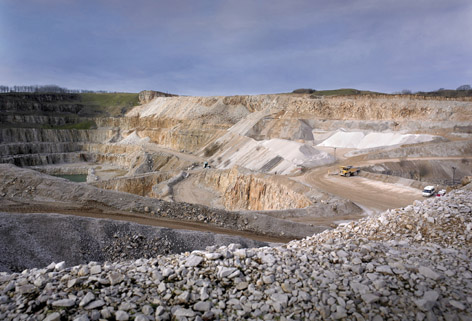January 22, 2024
(press release)
–
And with a general election approaching, the MPA is urging all parties to carefully consider the supply of essential domestic mineral products in their manifesto pledges on housing and transport, schools and hospitals, flood defences and renewable energy infrastructure. In the new document ‘Priorities for the Next Government: Decarbonisation, Growth, Delivery’ the MPA outlines the three fundamental issues that the next Government needs to get to grips with to support UK industry - accelerating decarbonisation, boosting economic growth and delivering critical infrastructure. Representing UK producers of heavyside building materials – collectively the biggest flow of materials in the economy – the MPA details the steps Government must take in three areas to enable the industry to support the wider economy and society: Jon Prichard, MPA Chief Executive, said: “For every party pledge to build more homes, improve transport infrastructure and accelerate renewable energy networks, politicians and policy makers need to factor in where the millions of tonnes of mineral resources and products will come from to realise their ambitions. “Besides supplying essential raw materials and products construction and manufacturing, MPA members invest in local, often rural, economies, employing 80,000 people nationwide across all demographics. The three priorities in this document come with common sense, and set out actionable policy proposals that, if adopted, would make a real difference to how our industry contributes to the UK economy, regionally and nationally.” Robert McIlveen, MPA Director of Public Affairs, said: “With an election on the horizon it’s important that MPs, parliamentary candidates, and policy makers are clear that the MPA’s members are not just keen, but are vital to helping them deliver their manifesto commitments. It’s critical that they get the policy framework right, with policies that support UK industry and its competitiveness. ENDS About the Mineral Products Association: Three key priorities for the next UK Government have been outlined in a new report from the Mineral Products Association (MPA) published today.
Three key priorities for the next UK Government have been outlined in a new report from the Mineral Products Association (MPA) published today.
The Mineral Products Association (MPA) is the trade association for the aggregates, asphalt, cement, concrete, dimension stone, lime, mortar and industrial sand industries. With British Precast, and affiliation of the British Association of Reinforcement (BAR), the British Calcium Carbonate Federation, the Cement Admixtures Association (CAA), CONSTRUCT, Eurobitume, MPA Northern Ireland, MPA Scotland and the UK Quality Ash Association (UKQAA), the Mineral Products Association is the sectoral voice for mineral products. MPA membership is made up of the vast majority of independent SME quarrying companies throughout the UK, as well as the 9 major international and global companies. It covers 100% of UK cement and lime production, 90% of GB aggregates production, 95% of asphalt and over 70% of ready-mixed concrete and precast concrete production. In 2021, the industry supplied £22 billion worth of materials and services to the Economy. It is also the largest supplier to the construction industry, which had annual output valued at £178 billion. Industry production represents the largest materials flow in the UK economy and is also one of the largest manufacturing sectors.
* All content is copyrighted by Industry Intelligence, or the original respective author or source. You may not recirculate, redistrubte or publish the analysis and presentation included in the service without Industry Intelligence's prior written consent. Please review our terms of use.




